Historical Knowledge Multiplication Worksheets for Ages 4-8
5 filtered results
-
From - To
Enhance your child's learning experience with our Historical Knowledge Multiplication Worksheets, designed specifically for ages 4-8. These engaging worksheets combine basic multiplication skills with fascinating historical facts, making math both educational and fun! As children explore various historical themes, they’ll practice their multiplication tables, sharpen their critical thinking skills, and develop a love for history. Each worksheet features colorful illustrations and age-appropriate challenges that encourage active participation. Perfect for home schooling or classroom use, our worksheets help young learners build a strong foundation in mathematics while discovering the importance of historical events and figures. Empower your child's education today!
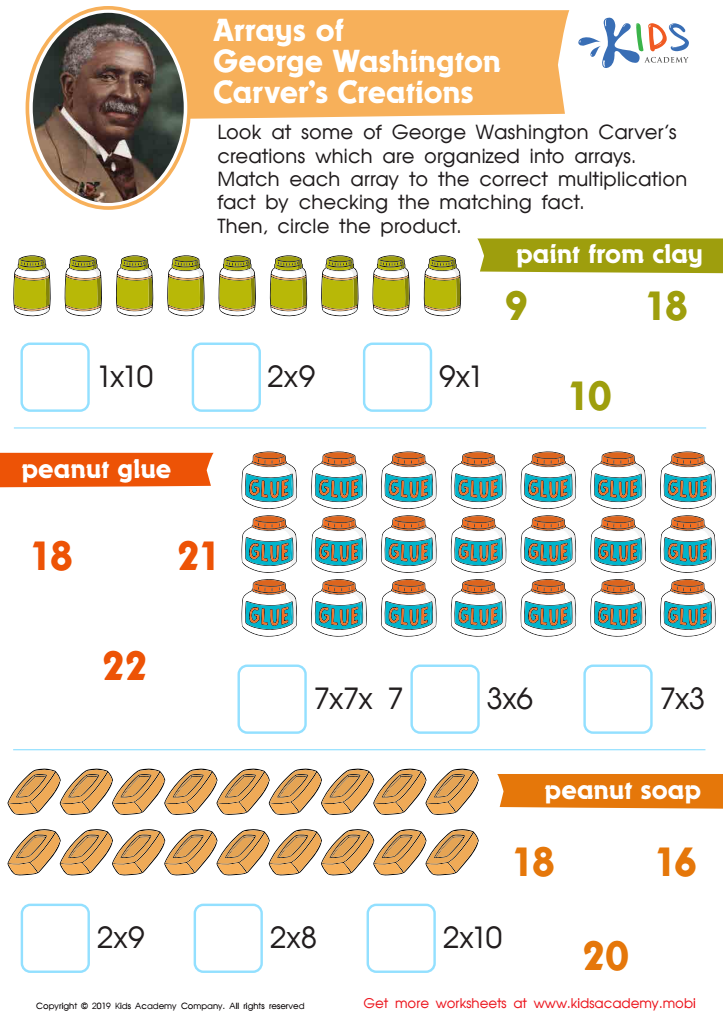

Arrays of George Washington Carver’s Creations Worksheet
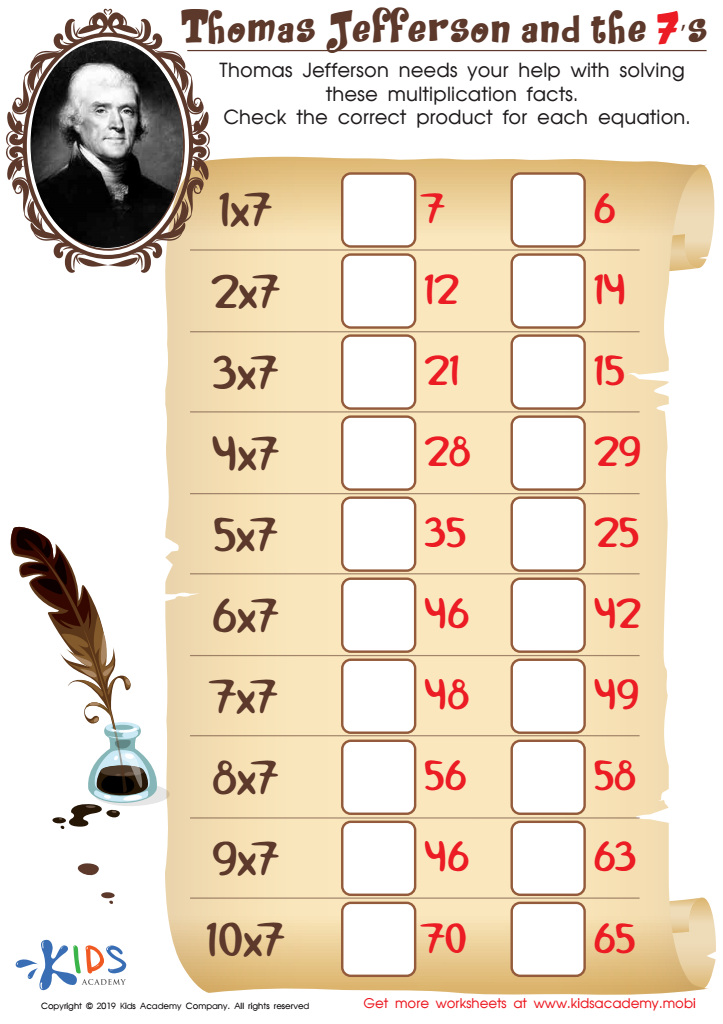

Thomas Jefferson and the 7’s Worksheet
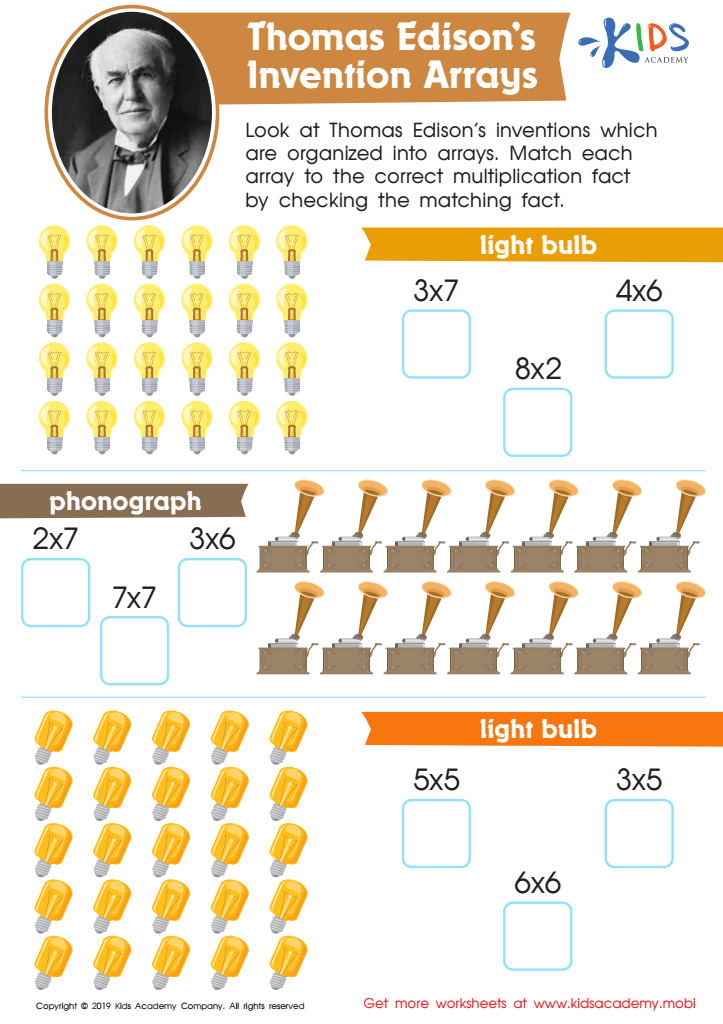

Thomas Edison’s Invention Arrays Worksheet
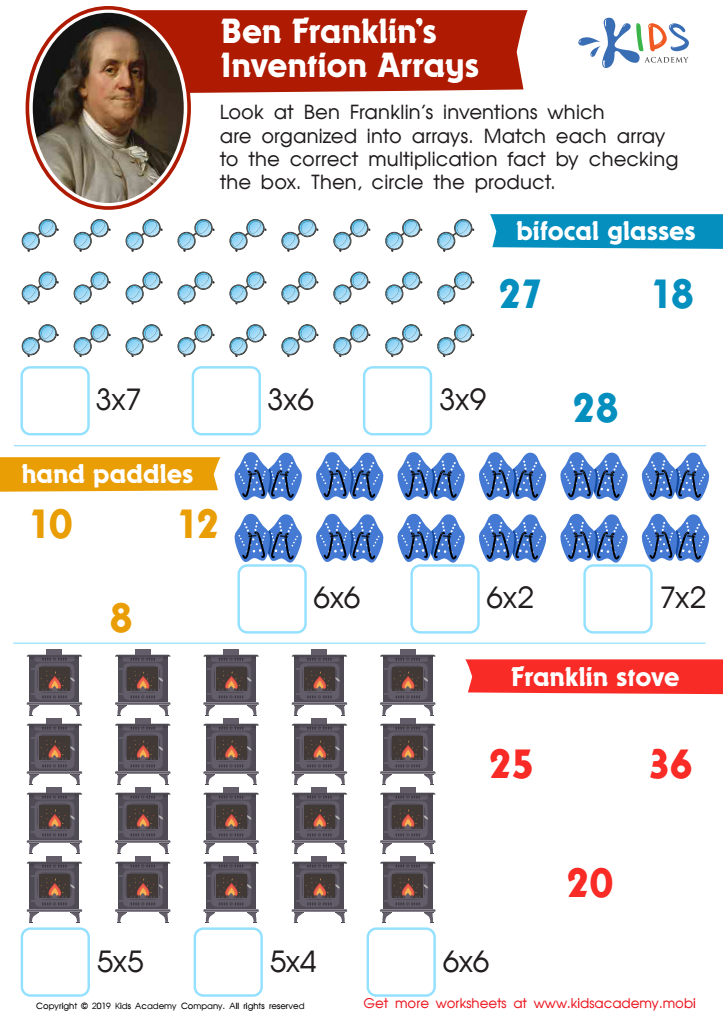

Ben Franklin’s Invention Arrays Worksheet
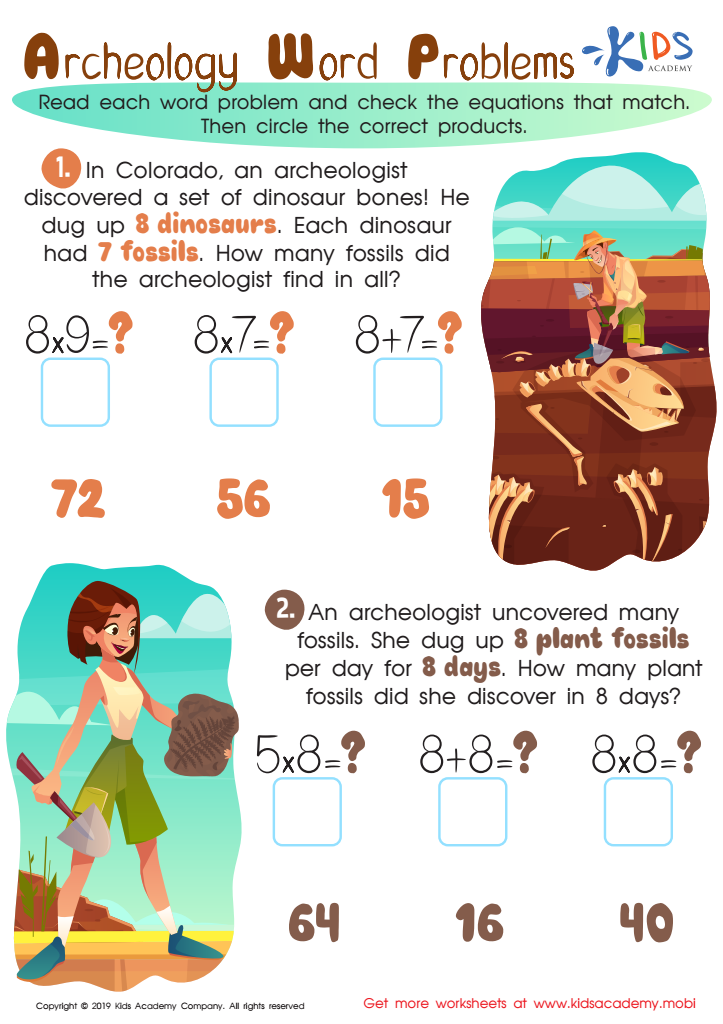

Archeology Word Problems Worksheet
Historical knowledge multiplication is crucial for children aged 4-8 as it lays the foundation for understanding their world. At this stage, children are naturally curious and absorb information eagerly. By integrating historical knowledge into their learning, parents and teachers can help children make connections between the past and present, promoting critical thinking skills early on.
Learning about historical events, cultural practices, and influential figures fosters a sense of identity and community. Children begin to appreciate the diverse tapestry of human experience, fostering empathy and tolerance for others. Moreover, by understanding basic timelines and cause-and-effect relationships, youngsters enhance their cognitive development, laying a groundwork for problem solving and analytical skills that will serve them throughout their education.
Engaging children with stories from history, age-appropriate biographies, and historical games enriches their vocabulary and communication skills. Thanks to lively and imaginative learning methods, children remember these lessons better, making history come alive. Teachers and parents who prioritize this aspect of education empower children with a contextual understanding of their present environment, enabling them to navigate an increasingly complex world. Ultimately, historical knowledge multiplication not only enriches academic learning but also cultivates well-rounded individuals prepared to contribute meaningfully to society.

 Assign to My Students
Assign to My Students




















